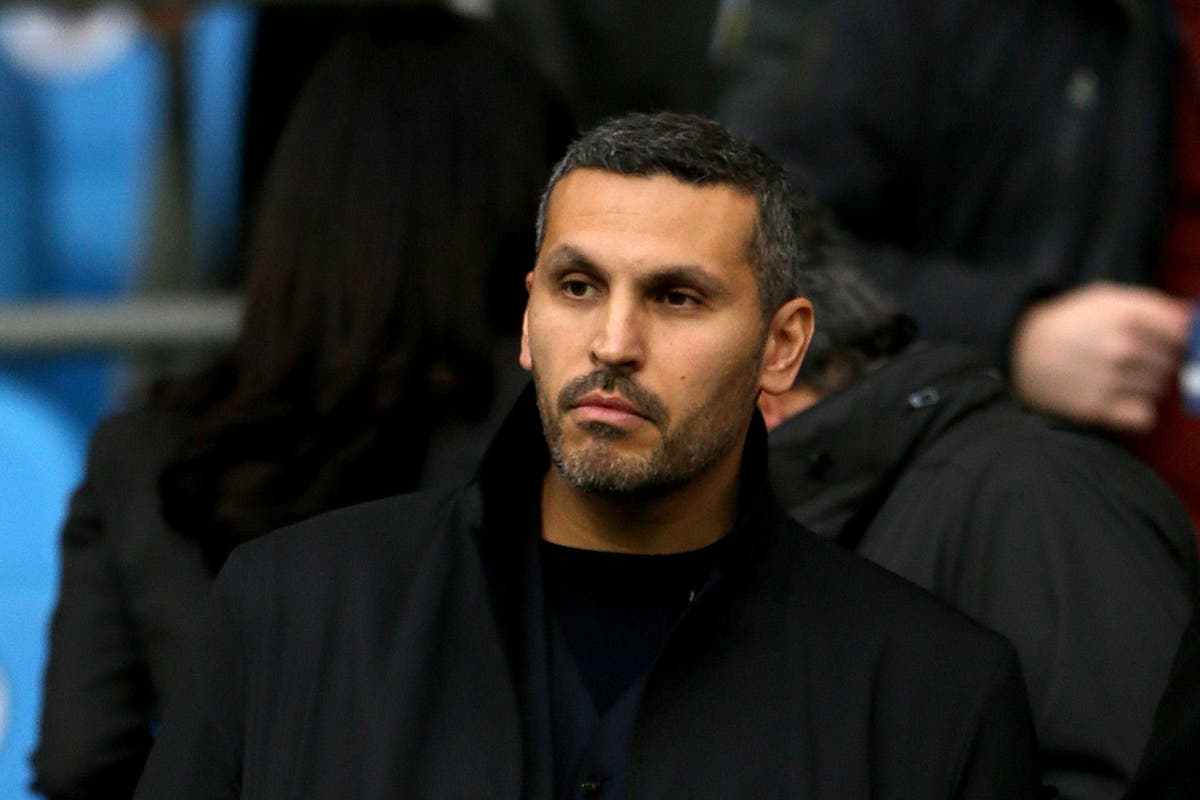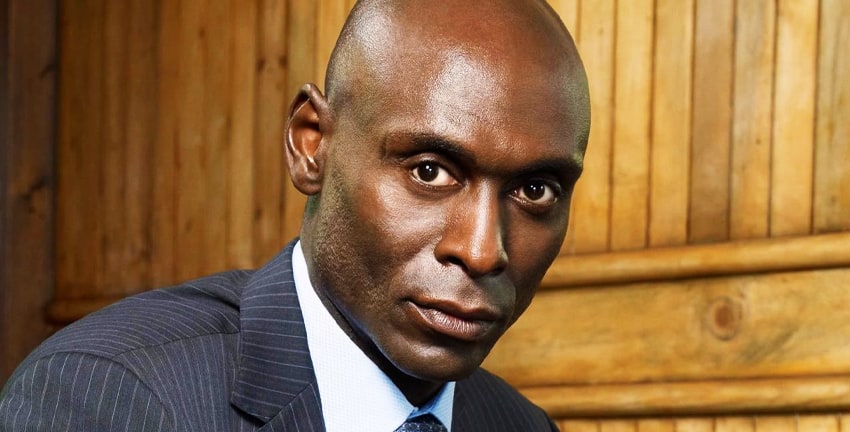Dance polyglots abound in the entertainment industry. Need a dancer who can pick up hip-hop and contemporary choreography quickly, and maybe also perform in pointe shoes? At most Los Angeles dance auditions, you’ll find not one but several.
The television competition “So You Think You Can Dance” hinges on that kind of spectacular versatility. (A concluding “In Many Styles” is implied.) When Gaby Diaz won Season 12 of the show in 2015, she seemed like a classic “So You Think” success story. After auditioning as a tap dancer, she proved exceptionally adaptable, even by the show’s high standards, bringing polish and vibrant energy to a wide array of dance genres. In her hyper-capable body, it all looked natural, easy, coherent, fun.
“She is the most articulate mover I have potentially ever come across,” said the choreographer and director Justin Peck, who has worked with Diaz on multiple projects. “She’s like this Swiss Army knife of all different kinds of dance styles.”
After winning “So You Think,” Diaz assumed that, like many of the show’s alums, she’d join the ranks of dazzlingly accomplished Los Angeles dancers. But soon she realized that the expectation of universal proficiency — and the demands of maintaining it — could breed a sort of flatness, turning dancers into execution robots.
She felt it flattening her. “I could pick up choreography really quickly,” Diaz said. “But I didn’t know how to dance any more. I didn’t have any ideas of my own. I would freeze any time I was asked to make a choice.”
In the years since that epiphany, Diaz, 27, has shaped a surprising freelance career, a new kind of model for “Swiss Army knife” dancers. Bridging the usually disparate worlds of commercial and concert dance, she has explored different uses of her technical capabilities and sought out jobs that involve more rehearsal time than stage time. In the process, she has become not just a speaker of various dance languages but also a translator, able to put multiple styles in conversation. She has found ways to make versatility a self-defining quality rather than a self-erasing one.
Today, Diaz is often the person that choreographers want in the room when they workshop new ideas. Notably, she has become part of a small team that Peck regularly turns to when developing works outside of his base at New York City Ballet, where he is resident choreographer and artistic associate. This month, Diaz will perform in Peck’s genre-eliding music-theater premiere “Illinois” at the Fisher Center at Bard College, a collaboration with the composer Sufjan Stevens and the playwright Jackie Sibblies Drury. She has been instrumental, Peck said, to the creation of its hybridized dance language.
“What I’ve discovered over time,” Diaz said, “is that the process is much more important to me than the performance. A lot of dance is very presentational, and I can do that. But I get even more excited when I’m working from the inside out.”
Diaz, who is Cuban American, grew up in Miami with “a lot of salsa music playing in the house,” she said. She found her musical outlet in dance, studying a range of techniques at the Roxy Theater Group and New World School of the Arts, performing in Miami City Ballet’s “Nutcracker” and participating in jazz dance competitions.
At 19, Diaz became the first tap dancer to win “So You Think,” which she had watched religiously as a student. She returned to the show as an “All Star” partner for two seasons, and other dance jobs weren’t hard to come by: She performed with Jennifer Lopez and toured with Shaping Sound, a commercially oriented dance troupe that included several “So You Think” alums. But she began to feel burned out and disoriented, sure of her value as an instrument but not of her perspective as an artist.
In 2017, she enrolled in a new professional training program at the contemporary company Hubbard Street Dance Chicago. It was a step both sideways into the concert dance scene and, in a way, backward: She was a student again, paying rather than getting paid to dance.
Still, it felt like the right path. In contrast to the punishing pace of the entertainment world, Hubbard Street’s program featured long rehearsal periods. “You would work on something for eight weeks and then perform it four times,” Diaz said. “It was amazing.” She found a particular freedom in the choreographer Ohad Naharin’s Gaga technique, danced without mirrors, in which movement originates from ideas and sensations.
Diaz danced as an apprentice with Hubbard Street but failed to secure a permanent position with the company. Right after hearing that “no,” she received an email from a childhood hero, the former Miami City Ballet principal Patricia Delgado. Delgado had been named the associate choreographer for Steven Spielberg’s film version of “West Side Story”; Delgado’s offstage partner, Peck, was its lead choreographer. Would Diaz like to audition?
So Diaz changed tacks again, entering the world of feature film. She connected with many of the exceptional dancers in the “West Side” cast — especially Patricia’s sister Jeanette Delgado, also a former Miami City Ballet star and an idol of Diaz’s, who danced alongside her in the Shark ensemble. And she felt at home in Peck’s choreography, which has roots in ballet but often branches out in other directions.
When the pandemic snuffed out live performance, Diaz worked on more film sets, dancing in the 2021 adaptation of “Tick, Tick … Boom!” and the 2022 holiday movie “Spirited.” She even lived out a movie trope: She cut her hair short, a symbol of her continuing artistic transformation.
“It sounds so silly, but once I chopped it all off, I felt like, Oh, I am here,” she said.
As theaters reopened, Diaz ended up making another right turn — this time, into musical theater. The choreographer Andy Blankenbuehler hired her to star in his directorial debut, the Off Broadway musical “Only Gold.”
Though Diaz had little singing or acting experience, Blankenbuehler ended up shaping the part of the rebellious Princess Tooba around Diaz’s “incredibly spicy energy,” he said. “Once I met her, I didn’t want to fill a role — I wanted to hire her.” (Diaz won a 2023 Chita Rivera Award for her performance.)
When “Only Gold” closed last fall, Diaz returned to her happiest place: the rehearsal studio, to help Peck flesh out “Illinois” — a dance narrative for 12 performers that Peck describes as “like watching a silent film, live.” Set to Sufjan Steven’s 2005 album of the same name, the show pulls together many of the threads of Diaz’s career, using her tap experience and her contemporary lyricism in the service of its storytelling.
“It’s the most I’ve ever been able to teeter-totter between being a human onstage and being a dancer onstage,” she said. “That’s the place I’m most interested in being in right now.”
Both Peck and Blankenbuehler said they wanted to create better artistic homes for dancers like Diaz. (The cast of “Illinois” includes another “So You Think” winner, Ricky Ubeda; “Only Gold” featured multiple alums of the show.)
“There’s this generation of incredibly talented commercial and theater performers, and the dancing they get to do is often more of a device than a form of expression,” Peck said. “They deserve shows like ‘Illinois,’ or ‘Only Gold,’ that are vehicles for them to really do their thing.”
Diaz’s broad knowledge base and large web of relationships also make her a kind of “connective tissue,” as Peck describes it, in rehearsals and workshops.
Jeannette Delgado, who is in the cast of “Illinois” and now a friend of Diaz’s, said: “She is this heart-swellingly beautiful mover, so we’re all watching her anyway, but then she is open and curious and eager to help everyone figure everything out.”
Diaz has begun putting those qualities to use in offstage roles, helping choreographers refine and untangle their ideas. Recently, she’s been assisting Blankenbuehler in the early-stage development of a new musical theater project.
“Having her as a partner in the studio is like a security blanket,” Blankenbuehler said. “She can see your vision, and she can bring herself to it. I know she’s going to be able to save me when I’m stuck in a hole somewhere.”
Throughout her career, Diaz has taken jobs selectively, which she acknowledges is a privilege not all freelance dancers have. The name recognition that comes with her “So You Think” win means dance studios are always happy to hire her to teach classes, a way to supplement her income between larger engagements. But she’s also willing to hustle to pursue artistic opportunities that feel right.
“I come from a family that works hard,” she said. “If I’m in a pickle, and I need money, I’ll work a service job. I know I’ll be able to catch myself.”
Diaz will be busy with “Illinois” — which, following its summer run, will open at the Yard at Chicago Shakespeare Theater in Chicago in January 2024 — for a while. Beyond that, she has deliberately not planned much, leaving space for opportunities as yet unimagined.
“The openness to changing my mind is really the one through line in my career,” she said. “I crave that ability to pivot.”
















